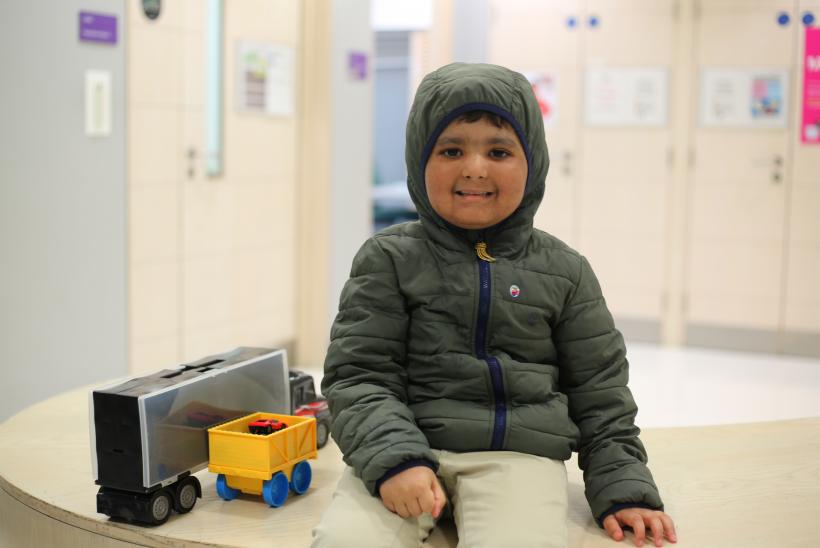Saudi Arabia Boy Receives Pioneering CAR-T Cell Therapy Treatment
Little Tamim, age 5, is soon to return home to Saudi Arabia, after life-saving immunotherapy treatment at the UK’s famous children’s hospital, The Great Ormond Street Hospital.
Tamim, from Saudi Arabia, has relapsed acute lymphoblastic leukaemia (ALL) and he recently received a new ground-breaking treatment known as Kymriah, at Great Ormond Street Hospital for Children (GOSH) in London. Kymriah is a type of immunotherapy called CAR-T therapy, which modifies a patient’s immune system cells, known as T cells, to attack cancer cells. At the beginning of 2019, GOSH became one of the first hospitals in the United Kingdom to be able to offer this life-saving treatment.
“It began when Tamim started having high temperatures, and in my mind I thought it was something normal – it could’ve been any normal condition. However, his temperature never went down. One day we arranged for a test and to be honest, the results were a big shock – I would never have expected it.” Explains Tamim’s mother.
In July 2019 Tamim was treated by CAR-T cell therapy, where the patient’s own immune system is used to help fight cancer. Dr Sara Ghorashian, Consultant Paediatric Haematologist at GOSH and who helped treat Tamim explains: “Rather than being a pharmaceutical drug, this is a cellular product created by taking a patient’s immune cells and then genetically-engineering them to recognise the patient’s leukaemia.” When asked if she would recommend this form of treatment, Tamim’s mother responded: “Of course, it was excellent. There are other forms of gene therapy available that we have tried before, and I noticed that it had some effect on Tamim. With this one, he didn’t feel as affected and tired as with the other forms of gene therapy”.
“I chose GOSH because Tamim’s condition needed urgent treatment.” Explains Tamim’s mother. “This treatment isn’t available in Riyadh or Saudi Arabia in general. It is only available in a limited number of countries and hospitals…the plan was to go to the United States, but we decided to come here because it would be quicker; there is a shorter waiting list and the process would be quick with no delays.”
At GOSH, patients are offered an all-round service. Dr Sara Ghorashian explains: “The CAR-T cell service at GOSH is a joint service between haematology and the bone marrow transplantation services and contributed to by Consultants from each of these teams. We have a team of clinical nurse specialists who help coordinate a patient’s care, and also ward nurses who help to look after patients during the out-patient and in-patient parts of their care respectively. We also link in with the neurology, endocrine and intensive care departments who regularly review our patients when needed and provide specialist support. Finally, we have a team of therapists, include physiotherapy and play therapists as well as a psychology service which supports patients and their parents throughout the treatment.”
During the procedure, Tamim’s mother had high hopes for her son. She hoped that the procedure would be successful and that he would be cured. Meanwhile, Dr Sara Ghorashian ensured that she remained comfortable: “She clarified everything to us and didn’t neglect any details. She even gave me the opportunity for some time off when I asked for it, and she was always very understanding of what we were going through.”
ALL is a severe form of leukaemia that affects around 600 people per year, most of whom are children between the age of two and five. Although the outlook for children with ALL has dramatically improved over the last decade, 10-15% of patients still do not respond to standard treatments. The new therapy has been shown to be effective in treating patients with particularly aggressive or relapsed cancers where other treatments have failed.
Tamim has a very resistant disease and he had faced a number of complications, and at GOSH he was provided with good supportive care. Tamim is about to be discharged and is currently doing well, however the final outcome of the treatment won't be known for several months. He is a remarkable little boy, who was mainly managed as an outpatient and will be returning home very soon, coming back to GOSH from time to time for check-ups.

